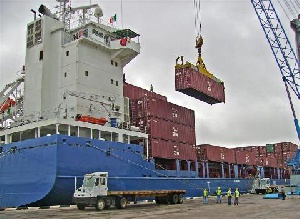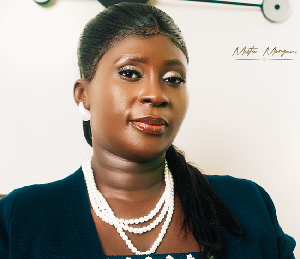Importers and exporters in the country have kicked against a draft regulation by the Ghana Maritime Authority (GMA), which will introduce new measures for container weighing in the country, saying it will burden them with unnecessary costs.
The proposed Legislative Instrument is intended to regulate the implementation of the Verified Gross Mass(VGM) regime, which is a directive from the International Maritime Organisation (IMO).
The IMO demands that all export cargo should be weighed to meet a specific gross mass before being loaded onto vessels, but the shippers say they cannot pay up to US$200 per container as the draft L.I proposes, as against the less than US$50 they pay currently.
The global sea trade regulator issued the gross mass directive as a measure to control overloading of vessels in the bid to avert the increasing incidence of loss of cargo and human lives at sea, setting July 1, 2016, as the approved date for its implementation across the globe.
The regime took off smoothly in the country on the set date and the implementation process, according to the shippers, has been a success by far.
But the shippers see the new intervention by the GMA as being akin to introducing a third party in the process, which would be a layer of bureaucracy, with unbearable cost implications, to an already smoothly running process.
Chairperson of the Greater Accra Shipper Committee, Adobea Asiama-Aboagye, told the B&FT in an interview that: “The introduction of a third party in the container weighing process is coming to add cost to the already burdened shipper.
As per the IMO provisions, the responsibility was on the shipper to justify that the weight corresponds with the accepted gross mass; so, it was entirely a process between the shipper and the shipping line.
We are not against the introduction of an LI to supervise the implementation but there should be no cost and no intermediary; we don’t need an intermediary to get the work done because anything else will come as an extra cost to shippers.”
The IMO proposes two methods for weighing under the new regime: the first is for the weight of a packed and sealed container to be determined with calibrated, certified equipment.
Secondly, the weight of individual units of cargo within a container are added up and, together with the material for packing and security as well as the tare weight of the container, result in the gross mass.
It, however, adds that: “A national regulatory body needs to approve and certify this method. It is not practical for bulk commodities like scrap or grain.”
According to Ms. Asiama-Aboagye, much as the LI is necessary as a WTO requirement, it will be better if the regime is allowed to go on as being done currently.
She noted: “You don’t need a third party to weigh and charge a fee for a process that can be run smoothly without any third party.”
To her, the provisions in the draft LI are rather going to add up to the cumbersome nature of working on shipments at a time that stakeholders are calling for the streamlining of shipping processes at the ports.
Penalty too harsh
The shippers are also unhappy with the new penalty stated in the draft regulations, which includes prosecution and imprisonment.
Under the current process, penalty for non-compliance is that the container will not be taken aboard the vessels, but the penalty as stated in the draft LI include prosecution and imprisonment.
This, according to the GARSC chairperson, will be too harsh: “Leaving a shipper’s container behind for non-compliance to the verified gross mass is enough to ward off future malfeasances. The shipper wants to save cost and make profit and will therefore be forced to act accordingly.”
The B&FT also gathered that shippers will be bonded to put all their cargo in a container before it could be weighed, unlike currently where they can weigh the container separately from the cargo, a situation that will inconvenience shippers in the hinterlands.
On his part, President of the Ghana Institute of Freight Forwarders (GIFF), Kwabena Ofosu-Appiah, told the B&FT that the GMA failed to consult the various stakeholders in the industry before coming out with the draft regulations.
According to him, adding to the current high cost of doing business in the shipping industry will drive down business confidence and ultimately defeat the agenda for an export-led economy.
He also shared in the concern that the introduction of any third party as a supervisor of the container weight verification regime will bring an extra layer of bureaucracy.
The GIFF president urged the regulator to consult industry players—those who are directly affected by policies and directives—before coming out with legislations.
“Most of the time, the technocrats will sit and pass the laws and wait for reactions from the actors on whom those laws will be enforced.
It should rather be the other way round; the various industry actors should be sufficiently engaged in the formulation of industry regulations.”
Business News of Thursday, 22 December 2016
Source: starrfmonline.com













